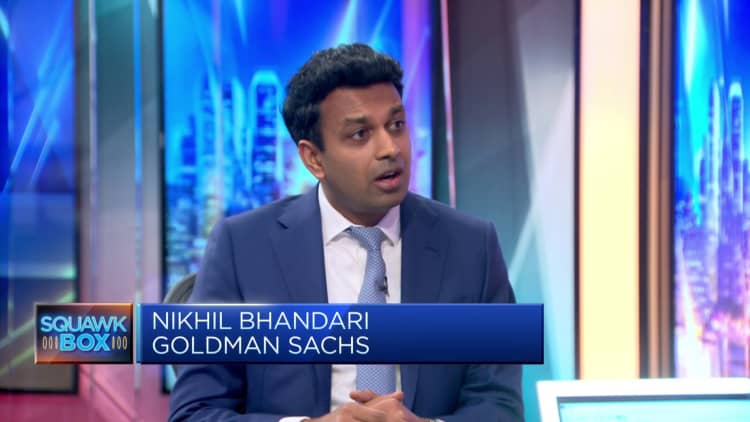
OPEC+ wants concrete rate cuts before factoring impact on oil demand, Saudi energy minister says
CNBC
The prominent OPEC+ oil producers’ alliance is awaiting concrete central bank action on interest rates before factoring in the potential impact on the energy demand landscape, according to Saudi Arabia’s energy minister. Expectations have mounted over the timeframe and number of rate cuts likely to be carried out by global central banks Saudi energy minister Abdulaziz bin Salman on Oct. 5, 2022. Bloomberg | Bloomberg | Getty Images
The prominent OPEC+ oil producers’ alliance is awaiting concrete central bank action on interest rates before factoring in the potential impact on the energy demand landscape, according to Saudi Arabia’s energy minister.
“Central banks, with all respect, they’re flip-flopping [on their messaging],” Prince Abdulaziz bin Salman said during a Sunday press briefing, in response to a question on whether OPEC+ supply cuts could reinject inflationary pressures worldwide, at a time when central banks are reining in consumer price increases and shyly inching toward possibly cutting interest rates.
Earlier on Sunday, the OPEC+ group — which combines the Organization of the Petroleum Exporting Countries and its allies — agreed to extend official output cuts until the end of next year. A subset of the coalition will stretch out two further layers of additional voluntary supply reductions: This subgroup of eight countries will prolong a 1.7 million-barrels-per-day tranche all the way through 2025, and a larger 2.2 million-barrels-per-day cut until the end of the third quarter.
The production strategy decisions come at a time when OPEC’s own forecasts show a 2.25 million barrel-per-day increase in demand, according to the Monthly Oil Market Report of May. The imminent summer driving season and the end of refinery maintenance in China are also set to exacerbate the call on crude in the short term.
Energy costs spiked worldwide in the wake of Russia’s full-fledged invasion of Ukraine, aggravating the economic downturn that followed the Covid-19 pandemic. Global institutions have previously mentioned energy prices as underpinning inflationary concerns. In turn, the piled-on inflation has muzzled oil demand.
Expectations have mounted over the timeframe and number of rate cuts likely to be carried out by global central banks, whose nations battle indefatigably sticky inflation. The European Central Bank is widely projected to implement a long-awaited reduction during its meeting of June 6, even
CNBC
The full article is available here. This article was published at CNBC Economics.
Comments are closed for this article!